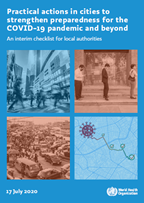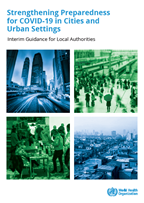Strengthening Multisectoral Engagement for Health Security
Countries must be better prepared to detect and respond to
public health threats in order to prevent
public health emergencies and the devastating impact they can have on people’s lives and
well-being, as well as on travel and trade, national economies, and society
as a whole. Public health challenges are complex and cannot be
effectively addressed by one sector alone. A holistic,
multisectoral and multidisciplinary approach is needed for addressing gaps
and advancing coordination for health emergency preparedness and health security and is
essential for the implementation of the International Health Regulations (IHR, 2005).
The
International Health Regulations, have been approved by all Member States of
WHO in 2005 and entered into force worldwide in 2007, require countries to
develop, strengthen and maintain minimum national core public health capacities
to detect, assess, notify, and respond to events that may constitute a public
health emergency of international concern. The role of WHO in facilitating
collaboration and assistance in capacity-building is specified in Article 44.2
of IHR (2005), which states that “WHO shall collaborate with States Parties,
upon request, to the extent possible, in: (a) The evaluation and assessment of
their public health capacities in order to facilitate the effective
implementation of these Regulations; (b) The provision or facilitation of technical
cooperation and logistical support to States Parties; and (c) the mobilization
of financial resources to support developing countries in building,
strengthening and maintaining the capacities provided for in Annex1.”
High-level political commitment and technical guidance are both necessary for successful multisectoral coordination for health emergency preparedness and health security. The Multisectoral Engagement for Health Security (MHS) Unit has developed different frameworks and tools (the Multisectoral Preparedness Coordination, the Strategic Partnership for Health Security and Emergency Preparedness Portal, and Resource Mapping) designed to keep track of and help Member States report and achieve goals set out by the IHR.








